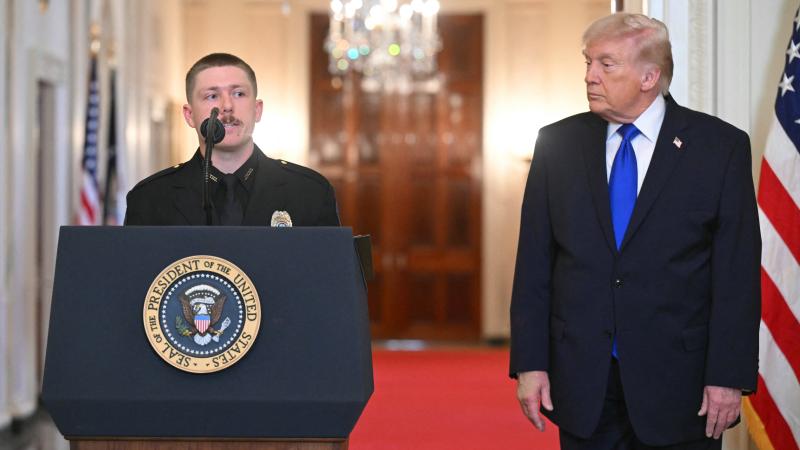As debate rages over masking children, experts downplay efficacy of cloth masks
Mixed messages from experts leave many parents confused with new school year approaching.
Experts are increasingly disputing the overall efficacy of cloth face masks in fighting the spread of SARS-Cov-2, even as many insist that children must be forced to wear them when attending school in the fall.
Cloth masks over the past year have been hailed as a critical lifesaving tool in the fight against SARS-Cov-2, with experts, public health organizations and commentators claiming that fabric masks are among the most indispensible factors in turning the tide against COVID-19.
Yet in recent days more and more prominent officials appear to be steering away from an emphasis on cloth masks and toward more robust forms of face coverings, suggesting a potential reevaluation of the overall effectiveness of cloth masks.
Among the more notable dissenters on cloth masking has been Michael Osterholm, the director of the Center for Infectious Disease Research and Policy at the University of Minnesota and an adviser on President Joe Biden's COVID-19 transitional advisory board. Osterholm recently argued that "many of the face cloth coverings that people wear are not very effective in reducing any of the virus movement in or out."
Osterholm himself has argued since last year that cloth masks are not 100% reliable. Yet a growing chorus of voices in recent weeks is offering assessments similar to the CIDRAP director's.
Among them is Zeke Emanuel, an oncologist who is the chair of the University of Pennsylvania's Department of Medical Ethics and Health Policy. Emanuel, like Osterholm, also served on Biden's transitional advisory board.
Emanuel recently argued during an interview on MSNBC that the U.S. needs to "up our ante" regarding masking.
"You know, wearing gaiters or just simple cloth masks are not good enough," he argued, claiming that "it's not just masking, it's proper masking, including the nose, and it's masking with a good mask like a N95." Emanuel did not respond to a request for comment regarding his opinion on masks.
Former FDA Commissioner Scott Gottleib last month argued similarly that individuals should search for more effective masks, claiming that "the quality of the masks does matter."
"So if you can get your hands on a KN95 mask or an N95 mask, that's going to afford you a lot more protection," he said.
Like Osterholm, Gottleib has previously argued that cloth masks are among the least effective means of shielding one's face during the pandemic. Yet the matter has taken on renewed importance as the new school year draws closer and more and more authorities call for the universal masking of children, in some cases as young as two years old.
The American Academy of Pediatrics last month called for every student in the U.S. "older than age 2" to be required to wear masks "regardless of vaccination status." Bitter debates at school board meetings across the country, meanwhile, have seen parents demanding either universal masking or no mask mandates at all in their local school districts.
Though experts have argued that cloth masks are markedly less effective than other types of masking, other authorities have offered the countervailing message that high-quality N95 masks should not be distributed to schoolchildren.
N95 masks "are not designed nor needed to be used by children," experts told "Good Morning America" this week.
"Absolutely, an N95 that has been fitted to you provides the most protection," University of Chicago pediatric infectious diseases physician Allison Bartlett told the news program. "It is true in a healthcare setting but not relevant to kids and schools. They don't really make child-size N95s, and unless you've gone through the fit testing, it doesn't really provide any extra protection."
"N95 masks on a child may not fit, and even if they do fit, they're not as comfortable," Boston Children's Hospital pediatrician Richard Malley told GMA. "We don't want to be recommending masks that kids are not willing to wear."
Multiple experts told the Boston Globe this week, meanwhile, that Americans should be moving away from cloth masks and toward higher-quality N95 masks. "They just work that much better than cloth masks," Stanford University infectious disease expert Abraar Karan told the paper. "We've proven it. We've shown it."
The mixed messages coming from various public health officials — that cloth masks are not all that effective, that they're good enough for kids, that N95s are the gold standard of masks but that parents shouldn't bother teaching their children to wear them — has likely only added to the confusion many parents are experiencing as the school year looms. Neither Malley nor Bartlett responded to requests for clarification regarding the matter.
Children, meanwhile, have been shown to be at relatively little risk for COVID-19 over the past 18 months.
According to CDC data, fewer than 360 children 17 years old and younger have died from COVID-19 since the virus was first identified in the U.S., constituting about 0.05% of all COVID deaths here.
















